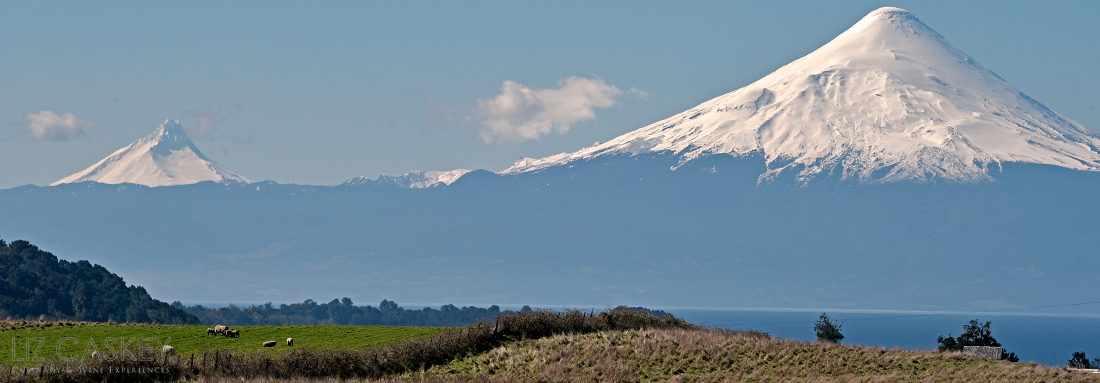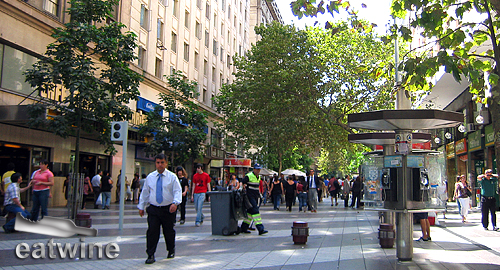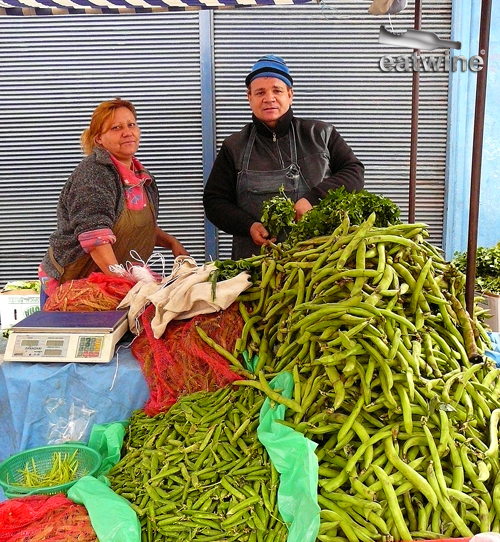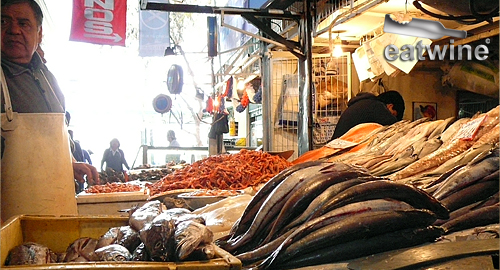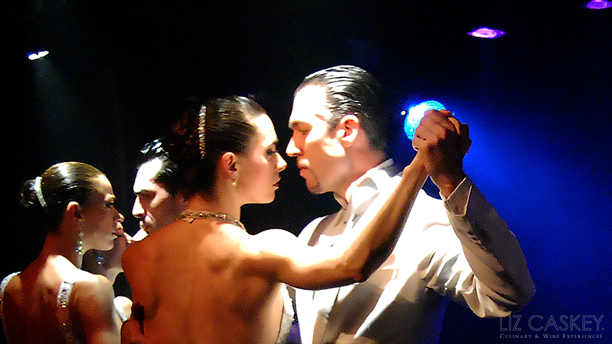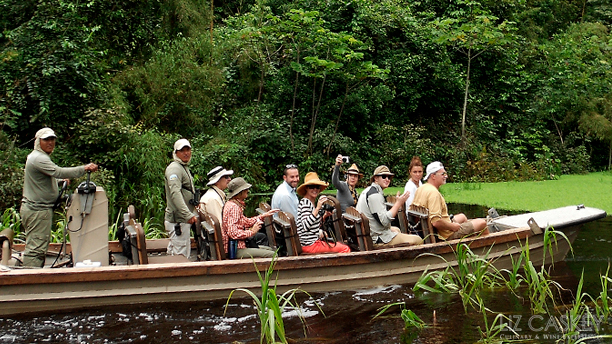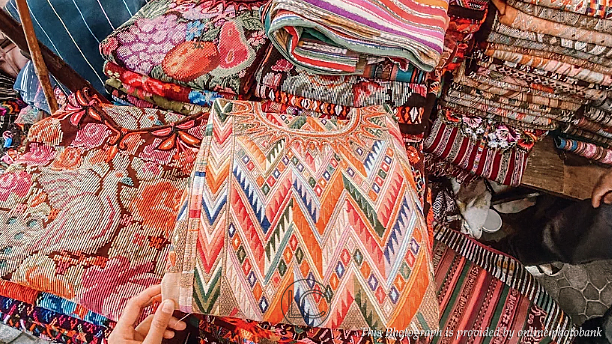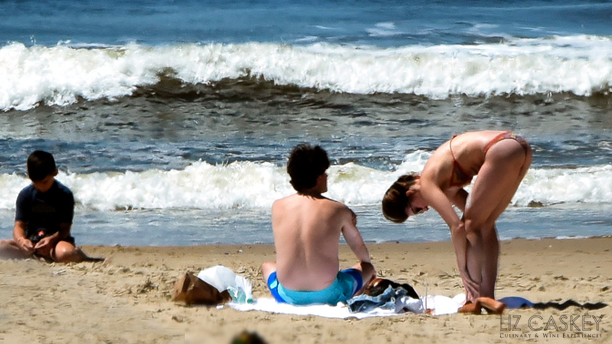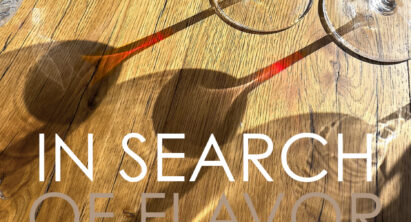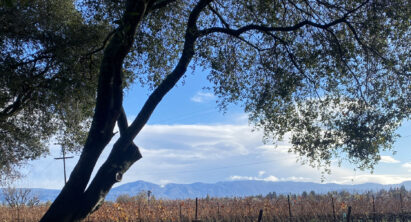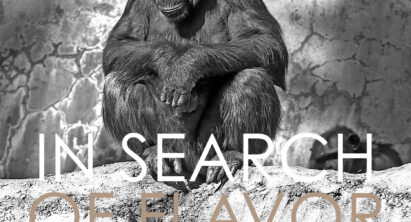I feel somebody studying my face; it feels like a test. I feel them examining me, not so subtlely, every angle and pore on my body. I sense him waiting for me to say a couple words to jump out and say what he cannot apparently control…; I feel it coming. It seems inevitable. Here we go, he’s going to say it: “¿Eres chilena?” Am I Chilean? This has been the long agony of a waiter who has taken at least 2-3 minutos of deep introspection and debate, in silence, as to whether or not he can and should ask me this.
“Depende,” I say, with the best Chilean accent I can muster. And I am not lying when I say it depends. I am in the process of getting my dual citizenship with Chile.
¿De dónde eres?; Where are you from? It seems to be the million dollar question for Chileans towards foreigners, country folk, or anybody they would consider an outsider. It’s a habit, a local ritual. During my daily errands I must answer this question at least twice per day from buying ingredients at the corner almacen to refilling my metro card. If I head out for lunch, get a manicure, head for a party, or take a taxi, the rate increases ten-fold.
This question appears to be innocent and overly simple. Some consider it friendly. But imagine how you would feel if they asked you, after 11+ years where you live, the same thing every single day. A “simple” question that comes even before saying hello, asking my name, or inquiring how I am doing. As an example, one of the gals in our office, who is over 6 feet tall, has Chileans ask to take photos with her (in the street) as if she was from another planet. This habit is programmed on the hard drive of all of Chile (or so it seems) and quite frankly, it gets old. It seems like such a totally irrelevant detail for two sentences of necessary dialogue between two perfect strangers. It mostly feels like an interrogation more than a showing “interest” and “curiosity” as many Chileans suggest. Yes, being foreign is a special “condition” here. If I don’t answer the question, the conversation cannot continue. The self-destruct button is pushed. Interacting becomes imposible.
For a long time, this habit really bugged me. More than anything, it pained me to be separated and identified as a weird “species.” On top of everything being different: language, traditions, being far from friends and family, etc. I was put in this category apart from everybody else. I obviously understood I was not going to pass as a native Chilean with my dirty blonde hair, light accent (for some reason everybody here thinks I am French…), my face and VERY white skin that are clearly northern European roots. But come on guys, don’t judge me and categorize me as “aaah, esa gringa” without going deeper. I adopted Chile, and all of South America, as my country and culture with my whole heart. I love it to pieces, it makes my soul sing. I feel more at home here than in the US. The constant greeting of “where are you from?” is not a proper greeting wherever you live to whomever you are. I don’t get how my (one) Passport is more important than what I think and how I am as a person. Like I said, it’s apparently a special “condition”.
After many years in Chile, I think I get what’s behind all this. Chile is an island culture in every sense but especially culturally speaking. It’s isolated, at the end of the world ( or beginning, depending on which way you look). It’s cut off by mountains, ocean, ice, and desert. Obviously, a small, enclosed, homogenous community here has been created where everybody knows each (and is in each other’s business I may add). The big wave of Basque, British, and German immigration happened generations ago and those descendents are assimilated now as Chileans. Of course, given the “small town factor” somebody from the outside is obviously going to be noticed. I understand that the “where are you from” question is to be expected from time to time. But the norm? Not cool.
But, hold on!! How is Chile NOW? What’s going on with the cosmopolitan, prosperous, developed Chile that’s becoming a player on the world stage and opening up to the world economically, gastronomically, culturally? Many visitors, investors, new immigrants (now from China, Palestine, USA) are coming to settle. Isn’t it time to become aware of this island mentality and not-so-nice custom of interrogating anyone perceived to be foreign? Isn’t time to change this and evolve into a tolerant melting pot culture that embraces other cultures instead of questioning them? Isn’t it time to first ask the name of somebody you just met instead of rudely assuming them to be a foreigner? Let’s look to other melting pot cities where it does work like New York, London, or Berlin where immigrant communities are a fact of life. Chile, I adore you, but this is an intrusive, unnecessary habit. I want to suggest that people (everywhere) put themselves in the other person’s shoes before probing. I promise that the answer will naturally come through the course of human conversation. Not a forced interrogation at the onset to satisfy one’s own curiosity.
I am not from another planet. I was born abroad. I am a foreigner in Chile. A foreigner/expat who’s going to have dual citizenship in the future. A foreigner who married a Chilean and chose to make her home, life project, and business in Chile. A foreigner who’s totally in love with Chile, the people, the food, the wines, the place. It’s like no other place on earth for me.
Now, when I am asked the “where are you from” question, I try to laugh. I see it as an opportunity to open somebody else’s eyes. Instead of getting frustrated or defensive since there must be something wrong with my accent, I simply ask, “sorry, you asked my name?”. I usually get a confused look first and then they get it—I am person first and foremost. Please do not reduce me only to a nationality. Please avoid making a snap judgment about where you think I may be from, who I without first recognizing me as a fellow human being. I am not a nationality. I am Liz. I am a gringa. That’s right, a gringa chilena.
Placeres Magazine column published in the May 2011 issue.
